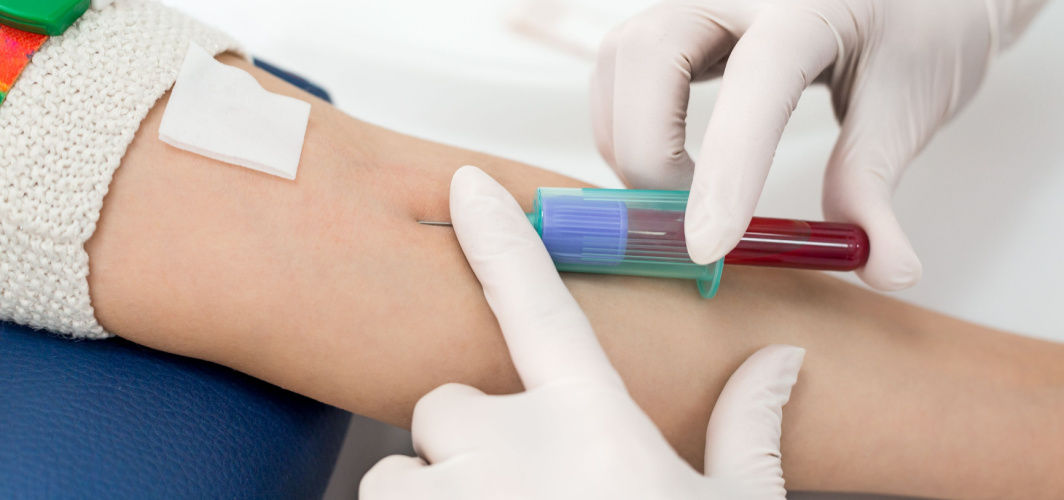Diabetes Management
Getting A Blood Sugar Test Done? Know How To Read The Report!
4 min read
By Apollo 24|7, Published on - 15 December 2022, Updated on - 01 June 2023
Share this article
0
1 like

Diabetes is one of the most widespread illnesses globally. According to IDF Diabetes Atlas 10th Edition 2021, it affected 537 million adults around the world. If not treated properly, it can lead to serious health issues like kidney diseases, cardiac problems, and vision loss. In fact, diabetes caused 6.7 million deaths in 2021. Isn’t that shocking? One of the best ways of managing this disease and preventing further complications is by keeping a constant eye on your blood sugar levels. This can be done by getting a blood sugar test done at regular intervals. Read on to find out about different types of blood sugar tests and how to read their report.
Types of Blood Sugar Tests
A blood sugar test measures the amount of glucose in your blood sample at a specific time of the day. A lower or higher than normal blood sugar level over a prolonged period can result in serious health concerns. A blood sugar test also enables your doctor to determine whether you have prediabetes, type 1 diabetes, type 2 diabetes, or gestational diabetes. There are different types of blood sugar tests, depending on the time your blood sample is taken for testing. These include:
- Random Blood Sugar Test: In these tests, your glucose levels can be measured at any time during the day randomly.
- Fasting Blood Sugar Test: In this kind of test, glucose levels are measured before breakfast. These tests require you to fast for 8-10 hours before the blood sample is taken.
- Postprandial Blood Sugar Test: In this type of test, blood glucose levels are measured after a meal.
- Glucose Tolerance Test: In such tests, your blood sugar levels are measured a short period after you consume a glucose solution orally.
Usually, doctors advise getting fasting or postprandial blood sugar tests done for accurate diagnosis.
How to Read a Blood Sugar Test Report?
Your blood glucose levels constantly keep changing throughout the day. They are at their lowest in the morning before you’ve taken your breakfast. These levels rise for a couple of hours after you have your meal. At any time during the day, the normal blood glucose levels range between 80 mg/dL and 110 mg/dL, making 90 mg/dl the average blood glucose level. A blood glucose level of 200 mg/dL or higher can be a sign of diabetes. Here’s how to read the reports for your fasting and postprandial blood sugar tests.
1. Postprandial Sugar
The blood glucose level exactly 2 hours after you've taken a meal is known as 2-hour postprandial blood sugar. In the case of healthy individuals, blood sugar levels typically go back down in a period of 2 hours. However, it may still be higher in diabetics. A blood sugar level ranging from 140 mg/dL to 200 mg/dL is called impaired glucose tolerance. Having a blood sugar level higher than 200 mg/dL even 2 hours after your meal in two different tests is an indicator of diabetes. This type of blood sugar test also helps in monitoring if diabetics are effectively managing their condition.
- Normal Glucose Levels: Less than 140 mg/dL
- Impaired Glucose Tolerance: 140 mg/dL to 200 mg/dL
- High Glucose Levels: Higher than 200 mg/dL
2. Fasting Blood Sugar
Also known as the pre-prandial blood sugar test, it measures your blood glucose levels after an overnight fast. Before getting this test done, don't eat anything for 8 to 10 hours. When two separate tests show that your fasting blood sugar levels are higher than 125 mg/dL, it's an indicator of diabetes.
- Normal Fasting Glucose Levels: 70 mg/dL to 100 mg/dL
- Prediabetes Fasting Glucose Levels: 100 mg/dL to 125 mg/dL
- Diabetes Fasting Glucose Levels: Higher than 125 mg/dL
Sometimes, these blood sugar tests have to be performed multiple times to confirm a diagnosis. If your tests indicate prediabetes, then you are at an increased risk of developing diabetes. You can prevent your prediabetes from progressing to diabetes by making certain lifestyle changes like engaging in regular physical activity and taking a low-calorie, low-fat diet. If you have diabetes, then it’s equally important to lead a healthy lifestyle for managing your condition. If you need to talk to an expert,
Consult An Apollo Diabetologist
You can also manage your diabetes like a pro with Apollo 24|7's 12-week empower programme.
Medically reviewed by Dr Sonia Bhatt.
Diabetes Management
Leave Comment
Recommended for you

Diabetes Management
Can Diabetes Affect Your Recovery?
Diabetes can influence the recovery process, causing delayed healing, heightened infection risks, and surgical complications due to impaired blood circulation and immune function. Additionally, neuropathy can complicate pain management, and diabetes-related comorbidities can extend recovery times. Effective diabetes management, including blood sugar control and a healthy lifestyle, is essential for improving recovery outcomes. Elevated blood sugar levels in diabetes affect the body's natural healing mechanisms by limiting nutrient and oxygen flow, hindering the immune system, and promoting inflammation within cells.

Diabetes Management
Can People with Diabetes Consume Low Calorie Sweeteners?
Common low-calorie sweeteners approved by the FDA include aspartame, acesulfame potassium, saccharin, sucralose, stevia, advantame, and neotame. Though artificial sweeteners are considered safe, long-term or excessive use may have side effects such as altered taste buds, increased cravings for sweets, and a potential association with weight gain, metabolic syndrome, and type 2 diabetes. Consulting with a dietician can help in managing blood sugar levels effectively.

Diabetes Management
Ground Breaking Developments In Diabetes Treatment And Management
New techniques like continuous glucose monitoring and closed-loop insulin delivery are making life easier for people with diabetes. Scientists are studying how diet, exercise, and behaviour changes can help manage diabetes better. The future looks bright for those living with diabetes!
Subscribe
Sign up for our free Health Library Daily Newsletter
Get doctor-approved health tips, news, and more.
Visual Stories

8 Fruits That are Incredibly Healthy for Diabetes
Tap to continue exploring
Recommended for you

Diabetes Management
Can Diabetes Affect Your Recovery?
Diabetes can influence the recovery process, causing delayed healing, heightened infection risks, and surgical complications due to impaired blood circulation and immune function. Additionally, neuropathy can complicate pain management, and diabetes-related comorbidities can extend recovery times. Effective diabetes management, including blood sugar control and a healthy lifestyle, is essential for improving recovery outcomes. Elevated blood sugar levels in diabetes affect the body's natural healing mechanisms by limiting nutrient and oxygen flow, hindering the immune system, and promoting inflammation within cells.

Diabetes Management
Can People with Diabetes Consume Low Calorie Sweeteners?
Common low-calorie sweeteners approved by the FDA include aspartame, acesulfame potassium, saccharin, sucralose, stevia, advantame, and neotame. Though artificial sweeteners are considered safe, long-term or excessive use may have side effects such as altered taste buds, increased cravings for sweets, and a potential association with weight gain, metabolic syndrome, and type 2 diabetes. Consulting with a dietician can help in managing blood sugar levels effectively.

Diabetes Management
Ground Breaking Developments In Diabetes Treatment And Management
New techniques like continuous glucose monitoring and closed-loop insulin delivery are making life easier for people with diabetes. Scientists are studying how diet, exercise, and behaviour changes can help manage diabetes better. The future looks bright for those living with diabetes!